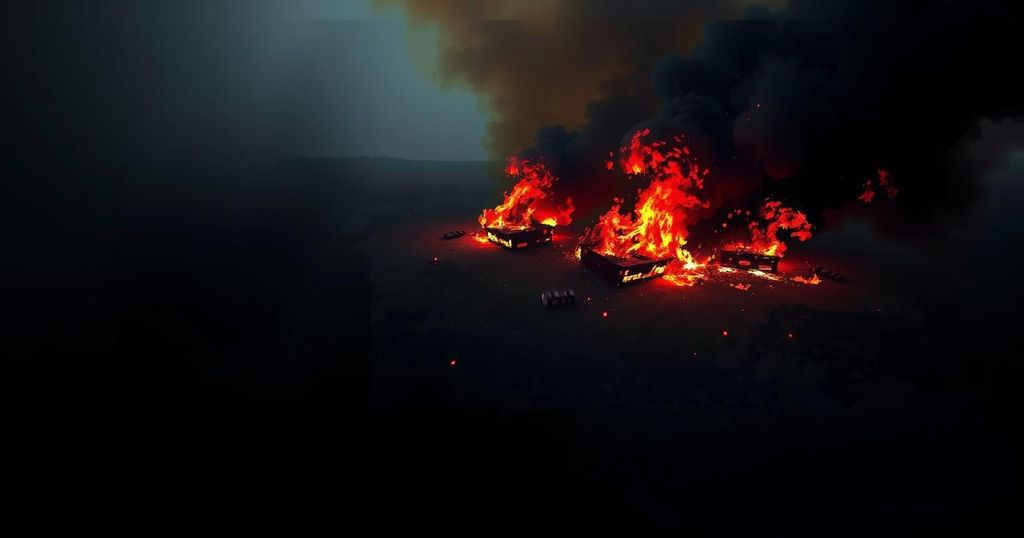Escalating Violence in Gaza and Lebanon Amid Proposed Ceasefire

Israeli airstrikes have claimed the lives of at least 53 Palestinians in Gaza and 21 individuals in Lebanon over recent days. President el-Sisi of Egypt has proposed a two-day ceasefire aimed at facilitating negotiations for the release of hostages. Amid escalating tensions, Iranian leaders have warned of potential retaliation against Israeli actions. The conflict has resulted in significant casualties, particularly among media personnel.
In a marked escalation of violence in the Middle East, the Israeli military has conducted intensive strikes in Gaza, resulting in the deaths of at least 53 individuals on a single day, the majority of whom were located in the northern part of the territory, where military operations have intensified. Additionally, an Israeli drone strike in Gaza’s al-Mawasi area has reportedly killed one Palestinian and left several others wounded. Israeli operations also involved detonating houses in the vicinity of the Bureij refugee camp in central Gaza. The ongoing conflict has significantly impacted journalists, with two more media workers among the casualties, raising the total number killed in this conflict to 182. In parallel developments, Israel’s air authority has also targeted locations in Lebanon, leading to the deaths of at least 21 individuals, including three paramedics, within the last day, as reported by the Lebanese Health Ministry. The rising toll of casualties in both regions has drawn international attention and concern. Egypt’s President Abdel Fattah el-Sisi has proposed a two-day ceasefire aimed at facilitating the exchange of four Israeli hostages for Palestinian prisoners. This proposal outlines a plan that includes further negotiations within ten days. In response, Israeli Defense Minister Yoav Gallant articulated the necessity of making “painful concessions” to ensure the safe return of the remaining captives held in Gaza. Meanwhile, Iranian officials have echoed sentiments of retaliation, indicating a strong resolve to respond to Israeli attacks, with President Masoud Pezeshkian emphasizing the demand for an “appropriate response.” Foreign Minister Abbas Araghchi also noted that indicative warnings had been received regarding potential strikes prior to the recent attacks.
The current conflict in the Middle East, particularly between Israel and Palestinian factions in Gaza, has escalated significantly since the onset of hostilities. The Israeli government has maintained an aggressive stance against what it characterizes as terrorist threats, resulting in extensive military action in Gaza. Concurrently, the situation has also spread to Lebanon, where cross-border interactions have led to increasing fatalities and injuries. These developments are paralleled by rising tensions involving Iran, which has openly supported actions against Israel, contributing to heightened fears of broader regional conflict. The humanitarian consequences of the ongoing war have been profound, eliciting reactions from international communities and organizations concerned about civilian casualties and escalating violence.
In conclusion, the situation in Gaza and Lebanon remains dire, with high casualty rates characterizing the recent military operations by Israel. The tragic loss of life, especially among journalists, underscores the severity of the conflict. Diplomatic efforts, such as the proposed ceasefire by Egypt, aim to alleviate tensions and address the humanitarian crisis, though the response from Israeli and Palestinian leaders suggests ongoing complexities in reaching a lasting solution. As the conflict continues, the international community watches closely, with calls for moderation and peace efforts being expressed at various levels.
Original Source: www.aljazeera.com








